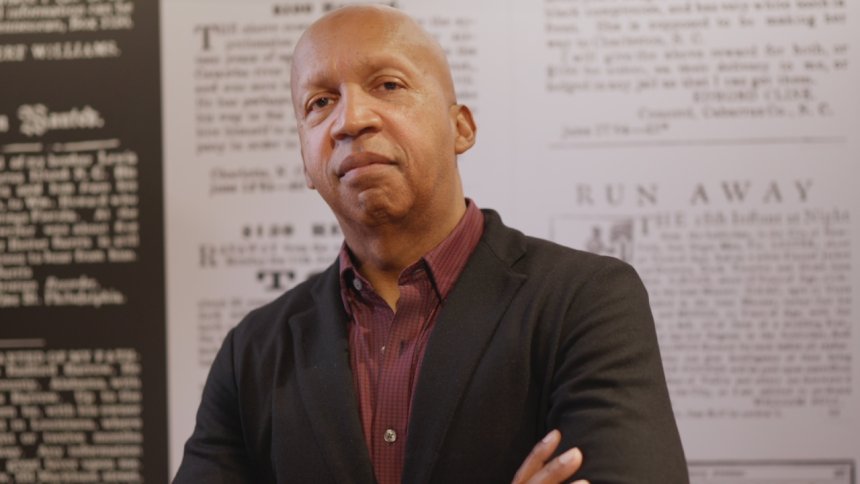Karen Pittman loves being a mom, but says ‘motherhood is a little overrated’
Karen Pittman opens up about the pressure placed on women to become mothers and why fulfillment doesn’t have to come

Karen Pittman opens up about the pressure placed on women to become mothers and why fulfillment doesn’t have to come from raising children.
Actress Karen Pittman is challenging long-held ideas about what it means to be a fulfilled woman.
During a recent episode of “Keep It Positive, Sweetie,” the “Forever” star sat down with host Crystal Renee Hayslett for a candid and refreshingly honest conversation about womanhood, motherhood, and the myths that surround both. And she didn’t hold back, reflecting on a comment she made in a 2022 interview with Scary Mommy.
“It’s really hard to have that conversation, amongst women, where we actually say, ‘Hey, guess what? Motherhood is actually a little overrated,’” she told the publication at the time. Fast forward, three years later, the actress stands by her statement.
“I think that we as women are sold that being a mother is the ultimate experience, maybe behind being a wife,” Pittman explained to the podcast host. “And I’ve had both experiences, and I strongly disagree. There are women in the world who don’t have children, and I wouldn’t say they’re missing out.”
It’s the kind of perspective that feels almost radical in a culture that still measures a woman’s worth by her relationship or reproductive status. However, for Pittman, best known for her roles in “The Morning Show” and “Forever,” modern womanhood is defined by so much more.
“There are so many areas where you can nurture and support and love and care in the same way that I do for my children,” she continued. “And the number one [way] that women can do [that] is to raise themselves up, to support themselves — to, you know, be their own mother and their own father in many ways.”
Now, that’s not to say Pittman doesn’t value motherhood. The actress, who shares two children, Jake and Lena, and may soon take on the role of stepmother to her partner Ade Richardson’s children, said raising her kids has been rewarding and humbling. “I did really need children to grow up,” she said. “I remember being a young girl wanting children, even more than I wanted a husband.”
But she cautioned against the kind of societal and internal pressure that can lead women to make life-altering decisions out of fear or obligation.
Acknowledging the physical and emotional demands of motherhood, she said: “Physically having a child, I think, is very, very difficult, and raising children is next level.”
“Maybe you don’t need to freeze your eggs, maybe you don’t need to stay with that guy because you really do want to have kids, and you feel like that biological clock is ticking,” she added, noting the various ways women can be mothers in this world without having biological children. “There are so many children that need love and support. You know, if you’re not able to biologically have a child, it’s not as if you can’t have a child in your life.”
Still, Pittman admits her maternal instincts run deep. She laughed about how her kids tease her for her reaction to crying babies in public. “If I hear a baby crying, my kids know they’re like ‘get that crying baby away from my mother because she hates a crying baby,’” Pittman joked explaining how her nerves kick in and her first response is “Let me fix that baby. I can take care of that baby [it happens everywhere] on the train, on a plane, in a restaurant. That’s my special power.”
For Pittman, motherhood isn’t something to reject or overly revere. It’s just one of many ways women can express love, care and purpose. However, just as becoming a mother can alter your body and perspective, she stressed how it can alter your relationship.
“I love that we’re talking about this because it’s such a real conversation,” she said. “There’s the pressure the world puts on you to be a mother and a wife, and then the pressure that happens when you’re actually in a relationship, where you really want to live in that space. A relationship changes so much when a child enters it. So you really do want to be thoughtful, intentional. Because it’s going to change the entire dynamic of how you live with that person, how you see them.”
Share
What's Your Reaction?
 Like
0
Like
0
 Dislike
0
Dislike
0
 Love
0
Love
0
 Funny
0
Funny
0
 Angry
0
Angry
0
 Sad
0
Sad
0
 Wow
0
Wow
0













![Britney Spears Explodes Again: Attacks Estranged Family in Shocking Post Claiming She’s ‘Scared’ of Them and ‘Lucky to be Alive’ after Conservatorship Hell [Photo]](https://www.lovebscott.com/wp-content/uploads/2026/02/britney-spears-110725-1-c88e4fe269b449e5bdfd76c72f7c8939.jpg)



